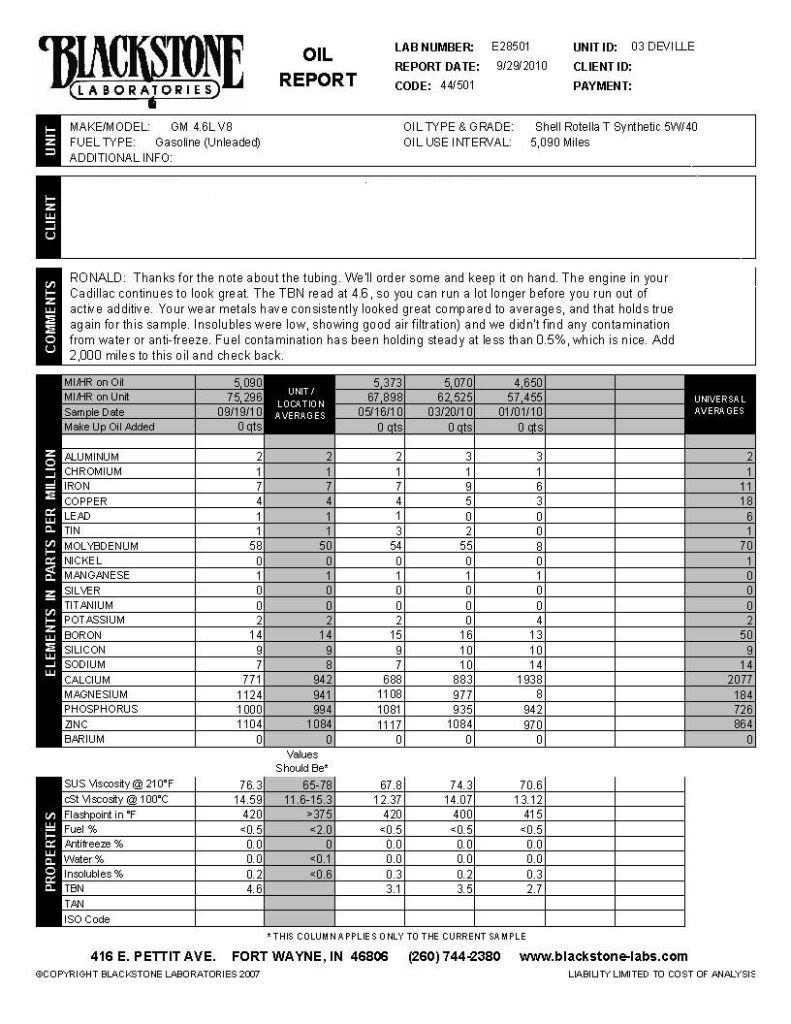This one is to check a run with Shell Rotella T Synthetc ("RTS") 5w40 with no Marvel Mystery Oil ("MMO") used at all - in oil or gas - with one that used MMO in the gas at the recommended dosage of 4 ounces per 10 gallons of gasoline but not in the oil.
The last run, at 75,296 miles on the "unit," was with no MMO at all. The run at 62,525 miles had straight RTS 5w40 oil with no additive, but MMO was used in the gas for it - as was also the case for the other two runs at 57,455 [with Rotella conventional 15w40 having 20% MMO] and 67,898 [with RTS 5w40 having 20% MMO.]
I think that the 3.5 TBN with MMO in the gas vs. the 4.6 TBN with no MMO in the gas is a significant finding.
I still run MMO in my gas, as I have since ethanol became standard in gas by the way.

The last run, at 75,296 miles on the "unit," was with no MMO at all. The run at 62,525 miles had straight RTS 5w40 oil with no additive, but MMO was used in the gas for it - as was also the case for the other two runs at 57,455 [with Rotella conventional 15w40 having 20% MMO] and 67,898 [with RTS 5w40 having 20% MMO.]
I think that the 3.5 TBN with MMO in the gas vs. the 4.6 TBN with no MMO in the gas is a significant finding.
I still run MMO in my gas, as I have since ethanol became standard in gas by the way.


